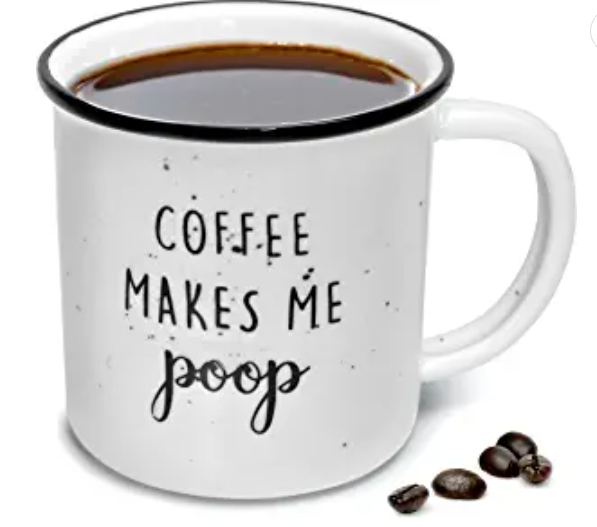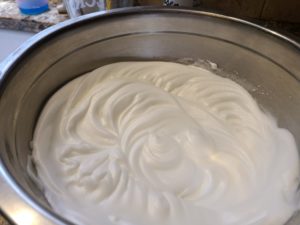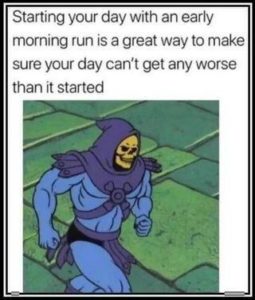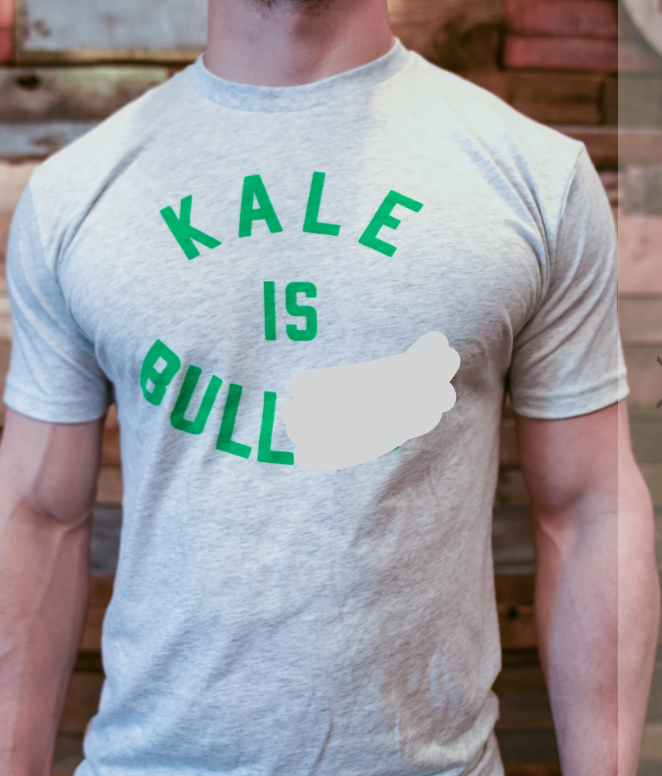Again.
I’ve been back and forth on this topic for at least a year now, first eliminating coffee, then adding it back to my routine, deciding against it, then for, then against. With all of the mixed messages in the ever-manipulable and untrustworthy “science”, I couldn’t decide whether I believed coffee was truly bad or not. There are arguments for and against, and both sides sound eminently reasonable. In my last post about healing my thyroid, I said we’d talk about coffee another time, as it is less relevant to the thyroid than it is to other things. So here we are!
Friends on social media will be all too aware of my struggle to decide whether I do or don’t like coffee today, and probably will be relieved to hear that I won’t be vacillating on that anymore. If you see me drinking coffee from this point, you’ll know that I’ve ceased to care about my health and mood, and probably need a good talking-to. Considering what coffee does to my mood, though, you may want to send someone with a thick skin to do the talking.
Now, why? What have I got against this marvelous bean that everybody clings to as if it were life itself?
Well, the first clue that it might not be the best thing for anybody is that everybody clings to it as if it were life itself.
Addictions are–try and stay friendly with me here, coffee addicts–bad. Socially acceptable addictions may be the worst of all, because all of the addicts are encouraging each other right out in the open, without shame. I can’t tell you how many times I’ve mentioned this or that ill effect I thought coffee was having on me, only to be strongly discouraged from doing anything about my problem by other addicts. They go to great lengths to send me the dozens of articles we’ve all seen about how coffee increases longevity, or helps with this ailment or that. When I read the literature behind the articles, though, the evidence is mixed, at best. I may be able to write some posts looking at these studies in depth sometime. When the kids are grown. Maybe.
(Our society’s coffee addiction is second only to our carbohydrate addiction, by the way. Tell people to cut carbs, and they will immediately turn to the food pyramid, the vegan quacks, grandma’s homespun wisdom, anything at all to make you stop telling them they have to put down the pasta and apple pie. The biggest problem I have with coffee, like many people have with carbs, is that I can’t moderate it. If I have “just a cup today”, my need will become “just a pot a day” within a couple of weeks. I do not like being ruled by anything, even if it’s something that is perfectly acceptable for other people. Carb addicts should think the same way about carbs. But I digress.)
Whatever the “science” may say about the benefits of coffee, I have gone through several cycles of testing things out for myself, and so should you. If you’re noticing problems, forget what some egghead said and do what you need to do to feel well.
Here’s what I notice when I drink coffee:
The first few days, one cup at a time, are great! I can run faster and farther. I can lift heavier. I want to write, talk, sing, dance, play! For about an hour after my cup, I have a minor but distinct edge over my un-caffeinated self of the day before. Then I slump for an hour or two, but I’m ok for the rest of the day. For the first few days or weeks of reintroducing coffee, that slump is bearable, and I only have that one cup.
After that honeymoon period, though, I’m utterly dependent. I’m no longer beating my un-caffeinated self at anything. I’m not fully awake until I have the coffee. I need the coffee just to be normal now. It’s no longer my super-power, but my crutch. I don’t just sag a little after that first cup wears off, I fall on my face. I don’t want to run or lift without it, and when I do, my performance is lackluster. My personality feels flat. I get a little headache. Then I can’t recover from my workout adequately without another cup. Next thing I know, I’m having to make myself cut the now-steady caffeine drip by noon, because I’m harming my sleep. When I look up and find that it’s 2 p.m., and I’m still sipping, I know it’s going to be a difficult night.
As far as my kids are concerned, the hardest part of the coffee habit is that it makes me jittery and cranky. Nobody wants a jittery and cranky mommy.
After a few days to a week of withdrawal symptoms, all of this goes away and I’m steady again. I still want to do all the wonderful things, but without the manic pressure to do it.
Hormones, man. What a drag.
Cortisol is commonly thought of as the “stress” hormone, but in reality, it is the wake-up-and-pay-attention hormone. (We could get into some other hormonal weeds here, like adrenaline and noradrenaline, but let’s keep it simple. If I’m a little bit inaccurate, it’s because I’m putting everything into the cortisol bucket for time’s sake.) Cortisol starts to rise shortly before you get out of bed, and continues to do so until midmorning. The problem with coffee in this context is that, while your body needs that cortisol to get going for the day, it emphatically does not need more than it is able to produce for itself. Coffee raises and artificially keeps elevated a hormone that needs to start coming down toward noon.
I’ve heard some biohacking “experts” say that coffee should be put off until late morning for the reason that you already have enough cortisol to get you through the morning, but you can use it to get over the late morning slump. But, for one thing, almost nobody is waiting until that time of day to have their first cup. For another, if your levels are naturally coming down midmorning, isn’t that because your body needs to shift to other modes for now? So I don’t think it’s a particularly healthy practice to wait for your natural “slump”, which probably is meant to trigger such trivial energy-seeking behaviors as eating and resting, to receive your boost of fake energy.
Coffee suppresses appetite. “Wait!” you say. “I thought that was a good thing! We’re all fat because we eat too much. Appetite suppression is good!”
No, I don’t think so. I no longer even recommend fasting to my friends and family who are trying to lose weight. Fasting works, of course. Don’t take me to be saying that it doesn’t. But it’s not the easiest, or the most humane, or the safest way to get healthy, and weight loss should be a secondary goal to health gain.
I didn’t even realize it until recently, but I was drinking coffee because it “helped” me skip breakfast. I always work out fasted, first thing in the morning. I just feel gross with food in my stomach while I’m trying to crush things. But now I’m eating immediately after the workout, instead of trying to push it until lunch or beyond.
For a long time intermittent fasting was something I thought I had to do to lose weight, or to keep it off. Now that I’m years into a carnivore diet, though, I find that I need to eat three good meals a day, and I tend to gain weight when I skip breakfast. The amount of food I eat doesn’t change, just the timing. A friend of mine mentioned to me just this week that having a meal a short time after rising can lower cortisol and actually help your weight stability. Of course it can! I had ignored this obvious truth in favor of the utterly disproven conventional wisdom that restricting calories, especially early in the day, is a recipe for success.
Man, it’s good to have smart friends, ain’t it?
And on top of that bit of bad thinking about meal timing, I was adding to the stress on my system by drinking coffee.
I think our appetites are out of whack because of what we eat, not how much. I do eat more often when I don’t have coffee. Because I’m eating the correct things, and the amount that my body intuitively asks for, I’m not putting on weight eating all three meals a day. I’m just getting real energy from my food, instead of resource-depleting fake energy. If you have some weight to lose, coffee will make you eat less often, but in the long run, you’re going to find yourself overeating to regain the nutritional ground you lost while you were burning the hormone candle at both ends.
Did coffee have anything to do with my thyroid hormones, as I’d mentioned earlier? The interplay between all of the body’s hormones, whether sex hormones or steroid hormones, is a delicate one, and of course messing with one thing will mess with another! Anyone who does have thyroid function will almost certainly be stressing that gland due to the other disrupted hormones. But since I don’t have any thyroid function to speak of, I wouldn’t really be affecting my thyroid directly with coffee.
In my case, it is the fact that having coffee within an hour of taking thyroid medicine will decrease absorption of that medication that was probably tripping me up the most. I was having a hard time even waiting an hour to drink my first cup, and I don’t doubt that was skewing my uptake at least a little bit. This isn’t just about your medication, though, friends:
Coffee also interferes with the absorption of nutrients from your food. Coffee lowers the acidity of your stomach. Please don’t listen to the idiots who say that’s a good thing. Your stomach is supposed to be acidic, with an ideal ph of between 1 and 2. Coffee is acidic, with a pH of 5, but not as acidic as stomach acid, so it’s actually not acidifying your body, but quite the opposite. When you bring that pH up even a little, you are impairing your stomach’s ability to dissolve and digest nutrients. (This is also why I don’t recommend drinking a whole lot of water at meals, but doing most of your drinking in between. Little sips will do to aid swallowing.)
Coffee contains phytates that can interfere with absorption of minerals such as iron and zinc.

Caffeine speeds up gut motility
Caffeine–not the only important compound in coffee, but the one you’re probably really addicted to–also speeds up your gut motility and causes your food to remain in the gut for a shorter time, further decreasing your absorption of food.
I’m going to go out on a limb with this next couple of possible harms. I haven’t really looked into these ideas yet, but I have hunches. Many of the plant compounds in coffee, including caffeine, are designed to act as pesticides to protect the seed from being eaten. There are any number of possible effects from this. You know that if you overdose on coffee, you will have symptoms: headaches, nausea, sleeplessness, jittery or nervous behavior. I think those compounds probably cause some leaky gut, a condition where the tight junctions in your small intestine become loosened and allow too-large proteins to enter the bloodstream, causing all sorts of symptoms of food intolerances and full-blown allergies.
Food poisoning may also be a slight concern. Not the most likely thing, maybe, but I have seen a pattern of illnesses that resembled food poisoning in at least one person I’m aware of who has been on and off coffee the same way I have. Eating is a challenge to the immune system. Every time you eat, your body directs a large portion of its resources to sorting out what is and isn’t acceptable to have in your bloodstream. If you are chronically lowering your stomach acid with coffee, you’re weakening your ability to fight the pathogens that are meant die in that acidic environment.
So, is coffee ever a good idea?
I can envision some scenarios where I might resort to coffee. Some kind of emergency requiring me to stay up all night, for instance. Living the quiet life I do, that’s a very unlikely thing, thankfully. Or maybe pre-race, a cup of coffee would be just the thing to push me over the top for just that one day. I do want to get out and race with other people sometime, instead of just racing myself every time. So that’s a situation where you might catch me backsliding a bit.
On any kind of regular basis, though? Nope. Coffee has got to go.
You’ll have to decide for yourself, of course, if your coffee habit is truly a good thing for you. I won’t make fun of you for enjoying your brew, and I hope the longevity studies turn out to be true. With this many coffee addicts running around, that certainly would be good news for all of us! But I do encourage everybody to at least try a few weeks without it, then go back to drinking it, and see if it’s really as harmless as you think it is.
I’ve closed comments on this blog. If you want to discuss this, or anything else, you can find me on MeWe, Gab, or SG.









